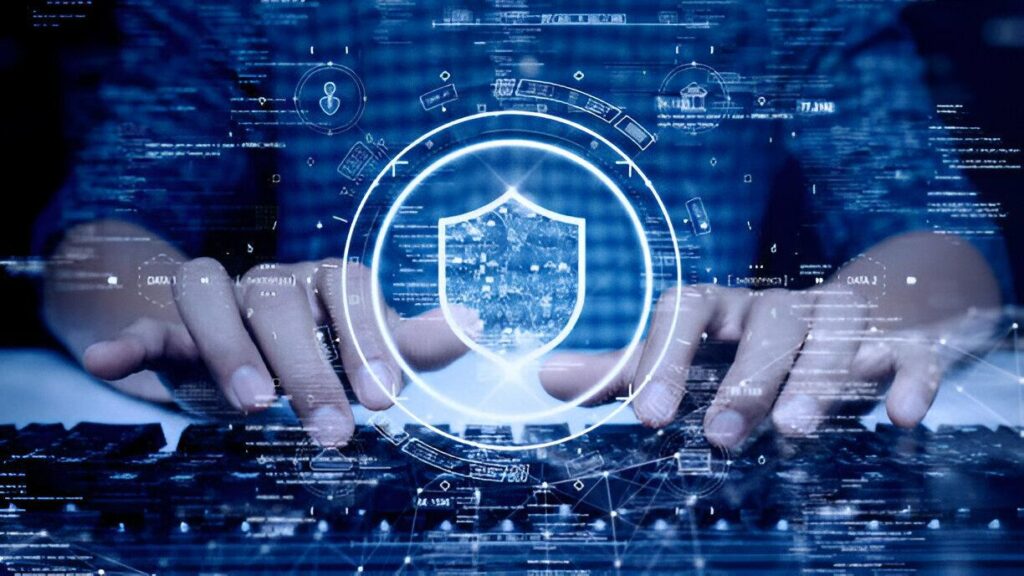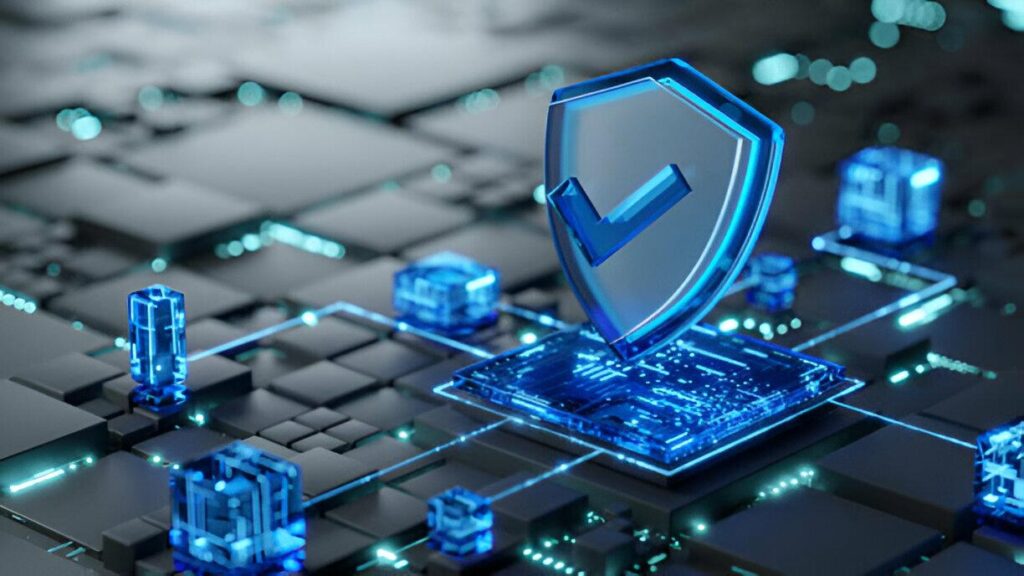06 Benefits of a Cyber Background Check

In the modern world, our online activities can reveal as much, if not more, about us than our physical presence. As a result, it’s crucial to have a complete understanding of someone before trusting them. With the rise of cybercrime and the constant risk of sensitive information being compromised, traditional background checks are no longer sufficient. This is where Smart Background Checks come in – they provide a digital fortress against potential threats. But what exactly are Cyber Background Checks, and why are they so important in today’s world? Let’s explore.
What are Cyber Background Checks?
Cyber Background Checks, also known as digital background checks or online background checks, are comprehensive investigations into an individual’s digital footprint. Unlike traditional background checks that primarily focus on criminal records, employment history, and personal references, Smart background checks delve into the vast realm of an individual’s online activities, interactions, and presence.
These checks utilize various tools and techniques, including legal software, to gather information from digital sources such as social media platforms, online forums, blogs, websites, and public databases. The goal is to gain insights into an individual’s behavior, interests, affiliations, and any potential red flags that may indicate risks to an organization’s security, reputation, or compliance requirements.
Cyber Background Checks may involve
Social Media Analysis: Examining an individual’s activity, posts, comments, and connections on social media platforms like Facebook, Twitter, LinkedIn, Instagram, and others to assess their behavior and character.
Online Presence Evaluation: Scrutinizing an individual’s digital footprint across the web, including personal websites, blogs, online reviews, and professional profiles, to understand their online reputation and credibility.
Digital Communication Monitoring: Reviewing email communications, instant messages, and online chats to identify any concerning language, discussions, or interactions that may raise security or compliance concerns.
Public Records Searches: Accessing public databases and online repositories to verify personal information, check for criminal records, and confirm employment history, education credentials, and professional licenses.
Cybersecurity Risk Assessment: Assessing an individual’s susceptibility to cybersecurity risks, such as involvement in cybercrime, history of data breaches, or vulnerabilities in their digital practices.
06 Benefits of a Cyber Background Check

Let’s expand on each of the benefits of conducting a cyber background check:
Identifying Potential Cyber Threats
Cyber background checks involve investigating an individual’s online activities, which can reveal any history of cybercrimes such as hacking, phishing, or malware distribution. This process may uncover instances where the individual has been involved in unauthorized access to systems, data breaches, or other malicious activities. An organization’s digital infrastructure can be protected and mitigated by identifying red flags early on.
Assessing Trustworthiness
Apart from spotting potential cyber threats, cyber background checks help organizations determine if an individual is trustworthy enough to handle sensitive information or critical systems. By examining their online activity, communication, and reputation, organizations can assess their dependability, honesty, and adherence to ethical values. This evaluation is especially crucial for roles that involve managing financial transactions, maintaining the security of IT systems, or dealing with confidential data.
Protecting Company Assets
In today’s world, data is one of the most valuable things for businesses to have. To keep it safe, employers conduct cyber background checks to spot any potential risks or vulnerabilities posed by people with access to sensitive information. By identifying people who have a history of data breaches, intellectual property theft, or cyber espionage, businesses can take extra measures to protect their valuable assets from unauthorized access or exploitation. These measures could include access controls, encryption, or monitoring employees.
Compliance Requirements
Many industries are subject to stringent regulations regarding data security and privacy, such as the Health Insurance Portability and Accountability Act (HIPAA) in healthcare or the Payment Card Industry Data Security Standard (PCI DSS) in finance. Cyber background checks assist organizations in meeting these compliance requirements by ensuring that individuals with access to regulated data or systems have a clean cybersecurity record. This helps mitigate the risk of non-compliance penalties, lawsuits, or reputational damage resulting from data breaches or privacy violations.
Preventing Insider Threats
Insider threats, where employees or trusted insiders intentionally or unintentionally compromise security, are a significant concern for organizations of all sizes. Cyber background checks help mitigate this risk by identifying individuals with a history of insider threats, such as data exfiltration, sabotage, or collusion with external actors. By screening employees, contractors, and partners for past security incidents or unethical behavior, organizations can implement appropriate security controls, such as employee training, privileged access management, or behavioral analytics, to detect and prevent insider threats before they occur.
Enhancing Overall Security Posture
By adding cyber background checks to the hiring process and keeping an eye on employees’ activities, companies can improve their overall security and avoid cyber risks. This is a proactive way of raising awareness about cybersecurity and making employees responsible for keeping sensitive information safe. Additionally, by constantly updating their cyber background check procedures, companies can stay up-to-date with the latest threats and regulations, and make sure their security measures are always effective in preventing new risks.
Read: Cryptojacking: How Your Computer Processing Power Can Be Stolen To Mine Cryptocurrencies For Criminals?
How to Implement a Cyber Background Check

While the benefits of cyber background checks are undeniable, it’s essential for organizations to approach their implementation thoughtfully and ethically.
The following points should be kept in mind:
- Respect Privacy Rights: While cyber background checks are valuable for security purposes, it’s crucial to respect individuals’ privacy rights and adhere to relevant laws and regulations governing data protection.
- Transparency and Consent: Organizations should be transparent with candidates and employees about the use of cyber background checks and obtain their explicit consent before conducting any screening.
- Accuracy and Fairness: It’s imperative to ensure the accuracy and fairness of cyber background checks by using reliable sources of information and avoiding bias in the screening process.
- Regular Updates: Given the dynamic nature of online activities, cyber background checks should be conducted regularly to stay abreast of any changes in an individual’s digital behavior.
- Training and Awareness: Employees should receive adequate training and awareness programs to understand the importance of cyber hygiene and their role in maintaining a secure work environment.
- Continuous Improvement: Cyber background check processes should be continuously reviewed and improved to adapt to evolving threats and regulatory requirements.
Conclusion
In today’s world, cybersecurity threats are a big deal, and businesses can’t ignore the importance of cyber background checks. By doing these checks, companies can beef up their security, maintain their reputation, and make smarter hiring decisions. However, it’s essential to carry out these checks responsibly, respecting people’s privacy and ensuring accuracy and fairness. By adopting cyber background checks as a proactive risk management tool, businesses can confidently face the challenges of the digital world.
By using Smart background checks, companies can stay ahead of cyber threats and protect their assets in today’s digital age. However, it’s crucial to implement these checks with care, respecting people’s privacy rights and ensuring accuracy and fairness. With the right approach and proactive measures, businesses can take advantage of cyber background checks to reduce risks and succeed in an increasingly interconnected world.
